15 Ways to Avoid Facebook and Instagram Copyright Strikes
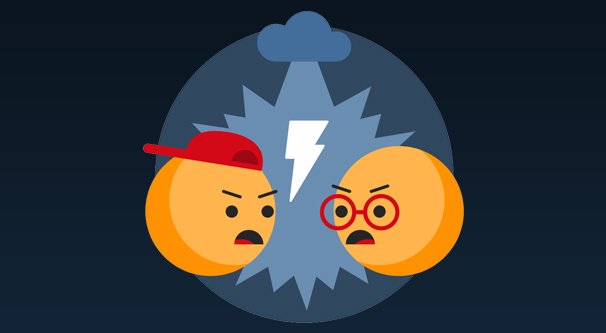
Everyone knows all about the copyright enforcement and various issues that plague YouTube. Did you know similar issues are rampant on Facebook and Instagram? Facebook – and Instagram, since they’re owned by the same company – has to deal with copyright since they’re a huge corporation largely governed by US law. That means as someone operating a page on Facebook or an Instagram account, you need to be aware of copyright and how to play nice.
Copyright Strikes and Penalties
Facebook has a copyright strikes system similar to YouTube, except they don’t tell you about it, there’s no way to monitor the number of strikes you have active without manually paying attention, the whole thing is variable based on the offense, and as always with Facebook, it’s variably enforced.
Basically, a copyright violation – or trademark violation, or other violation of intellectual property rights – on Facebook means you get a penalty on your account. How strong that penalty is, how long it lasts, and when it goes away is all variable.
Facebook doesn’t have a huge, broken system like YouTube’s Content ID. They have some automatic content filtering, and it can be extremely sensitive, but it mostly just applies to their livestream system and their videos. You can still be hit with copyright strikes for images and other content as well.
A large part of Facebook’s copyright system depends on user-submitted reports. Facebook will do some soft investigation when a user submits a copyright report, but they will usually only act on a report if it is accompanied by an official legal request. If you’re curious how that works, look up some posts about reporting a copyright violation.
Penalties for Copyright Violation
When you are accused of violating copyright or trademark on Facebook, the first thing that generally happens is your content is removed. You are notified why the content was removed, and you are given a link to dispute the copyright claim if you believe either you own the rights to the content or your use of the content is fair use. A counter-claim will cause either the original claim to be removed, or will escalate into a potential legal battle, so be careful with how much value you put on the content you post.
Repeatedly violating copyright – or at least having your content removed because of it – will cause more penalties to rack up for your page. Your account can be disabled, your page can be removed, your ability to post media can be restricted, and in extreme cases Facebook might facilitate someone taking legal action against you. In short, a lot of stuff you don’t want to have happen to you.
So how can you try to ensure you aren’t violating copyright?
1. Learn Copyright Laws
Copyright laws, trademark laws, and all the various intellectual property laws are a labyrinthine mess of vague precedent, predatory lawyers, judges living in the 70s, and contradictions. I don’t mean to say you should learn enough to be a copyright lawyer. Rather, just learn enough about copyright to understand what is and isn’t violation.
The key thing to know is that just because something is online does not mean you have permission to use it. Images in Google image search are almost always copyrighted, and just because you can find them doesn’t mean you’re legally allowed to use them. It’s actually a very clear-cut violation of copyright law and one of the few where you’re unequivocally in the wrong.
In order to use any content on your Facebook page, you need to either:
- Have created the content yourself and thus own the copyright. Or:
- Have explicit permission from the creator of the content to use it, such as when you contract the content to be made for you, or when you ask someone if you can share their photo on your page. Or:
- Use Facebook’s default sharing rather than saving and re-uploading content; thus providing attribution to the original creator. Or:
- Verify that the content is licensed under a creative commons or free use license explicitly, making it available for anyone to use. Or:
- Ensure that your usage of the content is very clearly an example of fair use.
If you aren’t certain you have permission to use a piece of content, be it an image, a song, a video clip, or what have you, exercise extreme caution. Remember: Fair Use is a defined legal term, not a catch-all for however you want to use content. Don’t just assume how you’re using content construes fair use.
2. Read Facebook and Instagram’s Copyright Policies
In addition to knowing the basic laws about copyright, you also need to be aware of the site policies for the sites you’re using.
The terms of use are virtually identical between the two sites, but I’ll link to both of their documents here.
Facebook’s Copyright Help Center Page
Instagram’s Copyright Help Center Page
Remember that these corporations would much rather ban your business page than suffer through lawsuits where they have to argue that, despite hosting content, they are not the ones violating copyright. All responsibility – and all punishments – will fall to you.
3. Avoid Posting Content You Didn’t Create
This one is probably rule number one of copyright. If you didn’t create the content, don’t post it. Images, videos, books, movies, songs; it doesn’t matter what it is. Copyright isn’t something you need to apply for, it applies automatically when you create content.
If you think this gets in the way of certain kinds of contests or other posts you want to make, well, make it explicit. For example, if you run a Facebook contest asking people to edit an image in an amusing way for a prize, ensure two things. First, make sure the original image is something you created. Second, make sure you have a contest terms and conditions document that explicitly gives you the rights to reproduce any submissions. You can find plenty of template terms around online, or you can consult a lawyer to draft one up for you.
4. Avoid Sharing Music You Didn’t License
Music is one of the easiest kinds of content to identify and is thus one of the most commonly reported issues with copyright. The problem you might encounter is that some instances of clear fair use – like cover songs – can trip the algorithm.
Facebook has banned people before for cover songs, even though they later made the policy that allows them. Just be careful any time you’re attempting audio-based fair use. You can run into issues.
5. When in Doubt, Give Attribution
Attribution does not mean you’re not violating copyright. If the copyright holder doesn’t want you to use their content, it doesn’t matter whether or not you’re linking to their site.
What attribution does is shows some goodwill. Many artists, small time musicians, and other content creators don’t have the time or money to pursue legal action. If you’re using their content and you don’t attribute it to them, they’ll be a lot more likely to pursue the copyright claim. If you attribute it, at least, some artists will take the exposure and let you keep using it.
This only works if you’re a business they approve of, of course. If the NRA took art from someone who is personally anti-firearm, you can bet it wouldn’t matter if they attributed it or not; the copyright claim would go forward.
Attribution is simply a very minor social element that might make an artist hesitate on filing a claim, that’s all. Don’t count on it to save you.
6. Ask For Permission and Prepare to Pay
If you really want to use copyrighted content on your page for any reason, do it the right way. Draft up a contract – one in favor of the artist is generally most acceptable – and offer to pay for a license.
Offer a fair rate and you’ll likely get a positive response, and you may even be able to work with that content creator in the future. Build a relationship, rather than fail at theft.
7. Don’t Use Others as Rationalization
Yes, we all know that Great Memes Every Day Dot Facebook Dot Net is a great page full of absolute piles of stolen content.
Just because they get away with it doesn’t mean what they’re doing is legal. Follow the rules, not the crowd.
8. Be Careful with Video Streaming
Livestreaming or recording live events is particularly hazardous. I’ve known people who have posted live videos and later had them removed on copyright grounds because of a song playing over a supermarket radio or something similar.
These copyright claims can be pretty sensitive, so be careful with any audio, even background audio.
9. Familiarize Yourself with Creative Commons Content
There are a lot of sites where you can find content available for free use. Look for the creative commons licenses. You can even use Google’s image search, if you go to Tools, then Usage Rights, then Labeled for Reuse.
10. Learn the Names of Copyright Trolls
Copyright trolls are companies or individual lawyers that go out of their way to file frivolous copyright claims to remove content, often demanding payment to get the content reinstated. Learn the names of the common trolls and help separate the bad reports from the real reports.
11. Learn the Appeal Forms
Sooner or later, something you post is probably going to be removed, and if you’re careful, it will probably be an incorrect removal.
Learn the appeal forms, make sure you have your information handy, and learn how to file such reports.
12. Don’t Use the Money Defense
“I’m not making any money from this so why does it matter” is not a defense. Breaking into someone’s house and then not stealing anything still counts as a crime.
13. Ignore Common Advice
A lot of the people out there writing about copyrights have, to put it bluntly, absolutely no idea what they’re talking about. Take this article for example. They claim that when you post something to Instagram, you lose the copyright. This is false. They claim you protect yourself if you give attribution. This is false. They claim an appeal can give you permission to use copyrighted music. This is false.
The only things they say that are true are that you can slightly edit music to avoid detection, and that you should use free licensed music instead. The second point is obviously the only good one.
14. Don’t Manipulate Content to Avoid Bots
Making slight changes to audio can indeed manipulate it enough to escape detection from the algorithm, but it does not constitute fair use, nor does it absolve you of copyright sins. In fact, making a slight edit to avoid a bot if anything shows a direct intent to steal intellectual property with awareness that you’re doing it.
This goes for simple techniques light slightly skewing or cropping images, pitching audio down or up slightly, adding a visual border or fuzz to a video to make it not match the original, and other techniques. All of this is enough to get past automatic filters, but it’s all a very clear expression of awareness of copyright and intent to steal. Consider it exhibit A when you’re taken to court over your intellectual property theft. You will lose that lawsuit easily.
15. Remember: You Mean Nothing to Them
At the end of the day, one business account – as long as you’re not on the same global scale as Nike, Google, or Coke – means nothing to a company like Facebook. If you prove yourself to be problematic, they have absolutely no incentive to keep you around. You end up costing them more in potential legal fees and hassle than you give them in ad revenue, so they’ll just ban you and be done with it. They’ll ignore your attempts to contact them and that’s the end of it. Nothing you can do will affect them in any way. Don’t try to fight the rules, just work within them.




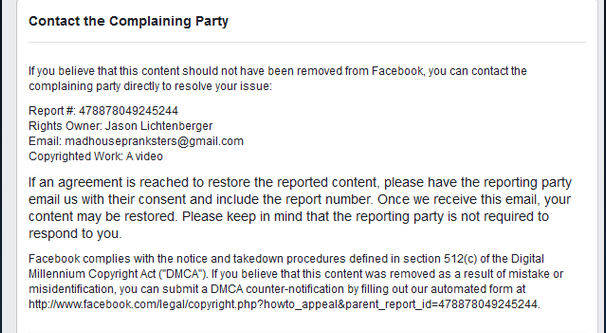
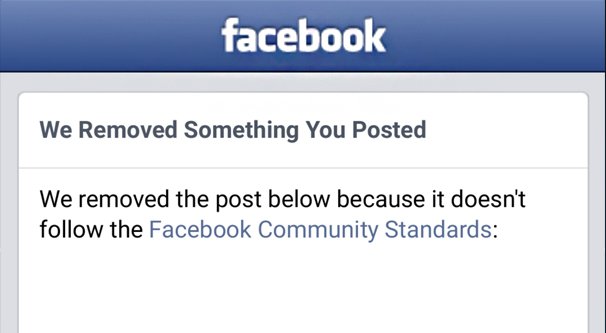
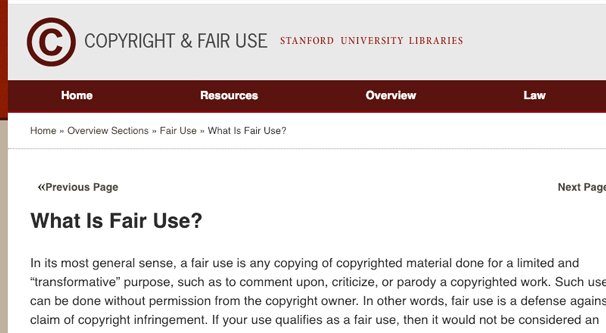
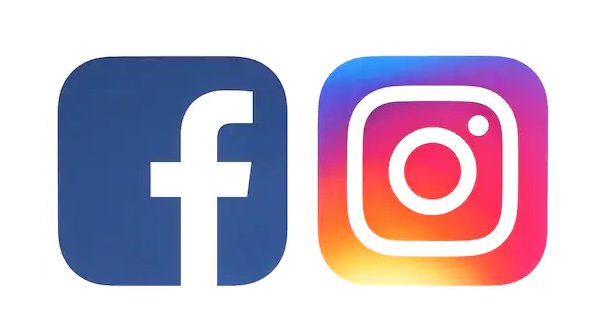
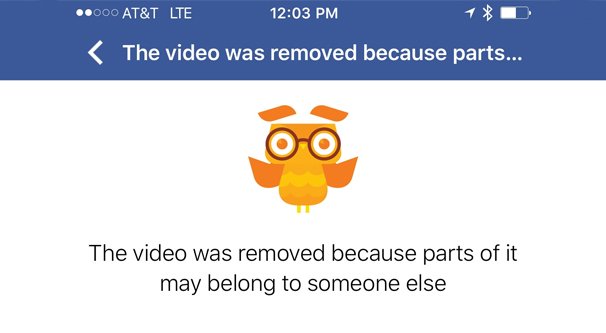
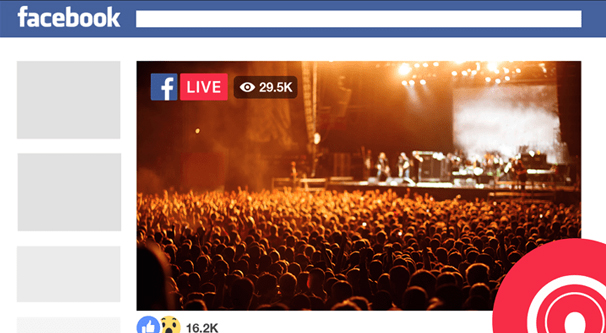
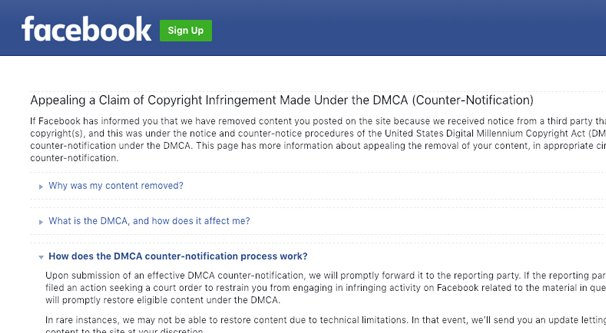
yeah, I completely understand, but it seems pretty ridiculous I can’t post the perfect cute video of my child if the radio was on at the other end of the house when I recorded it.